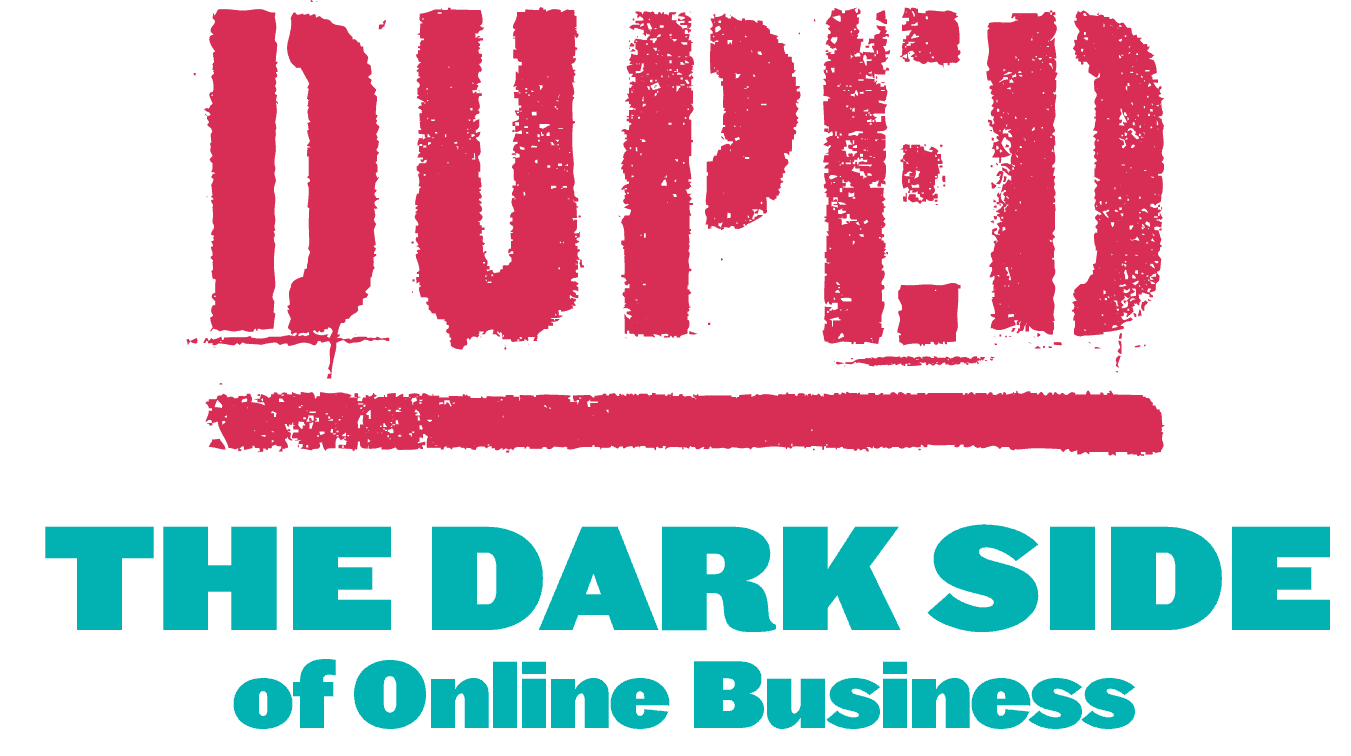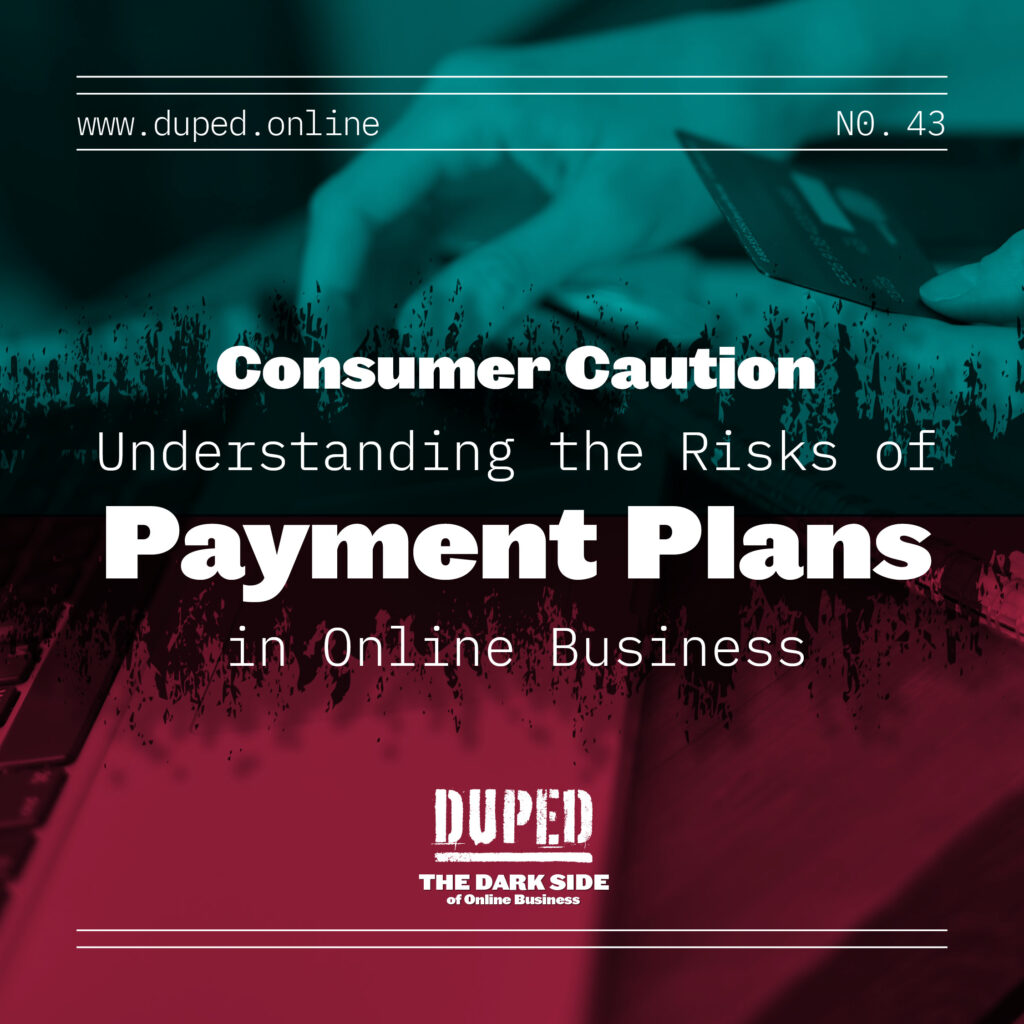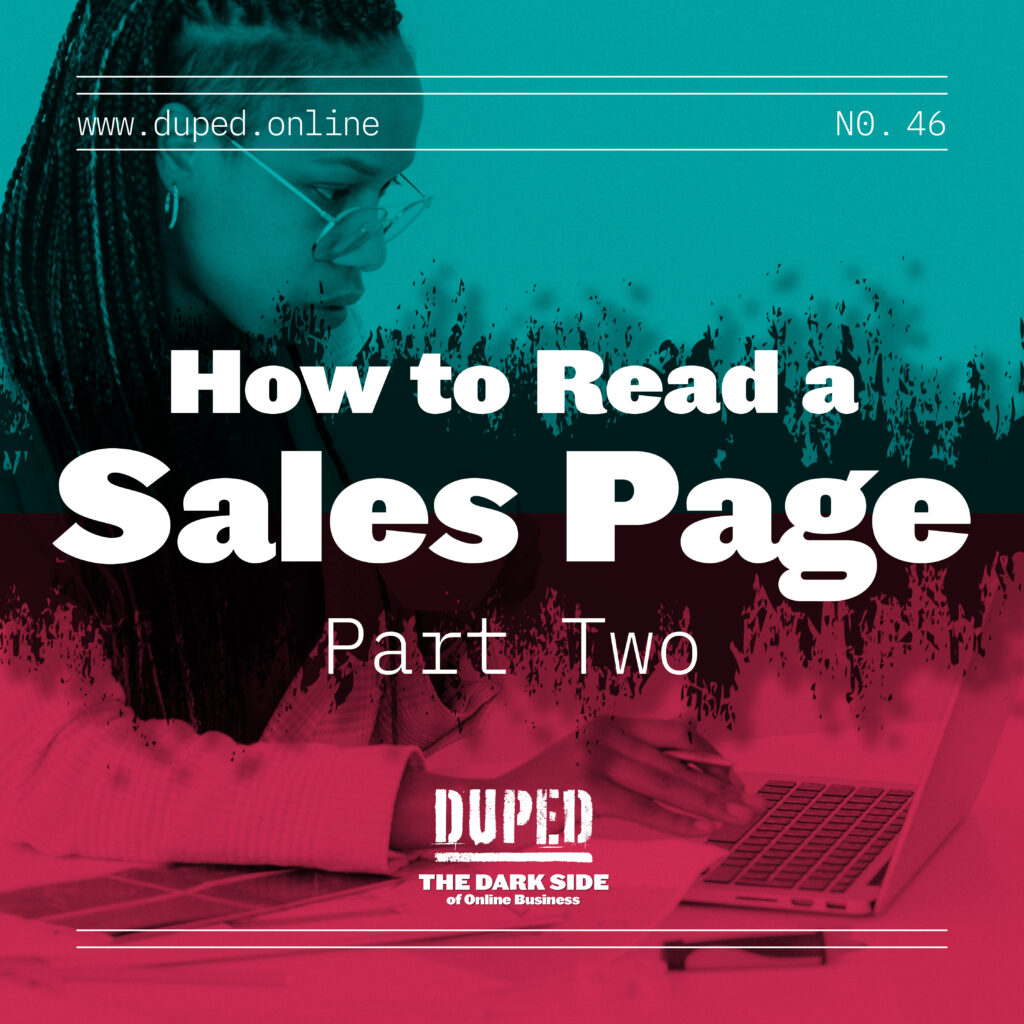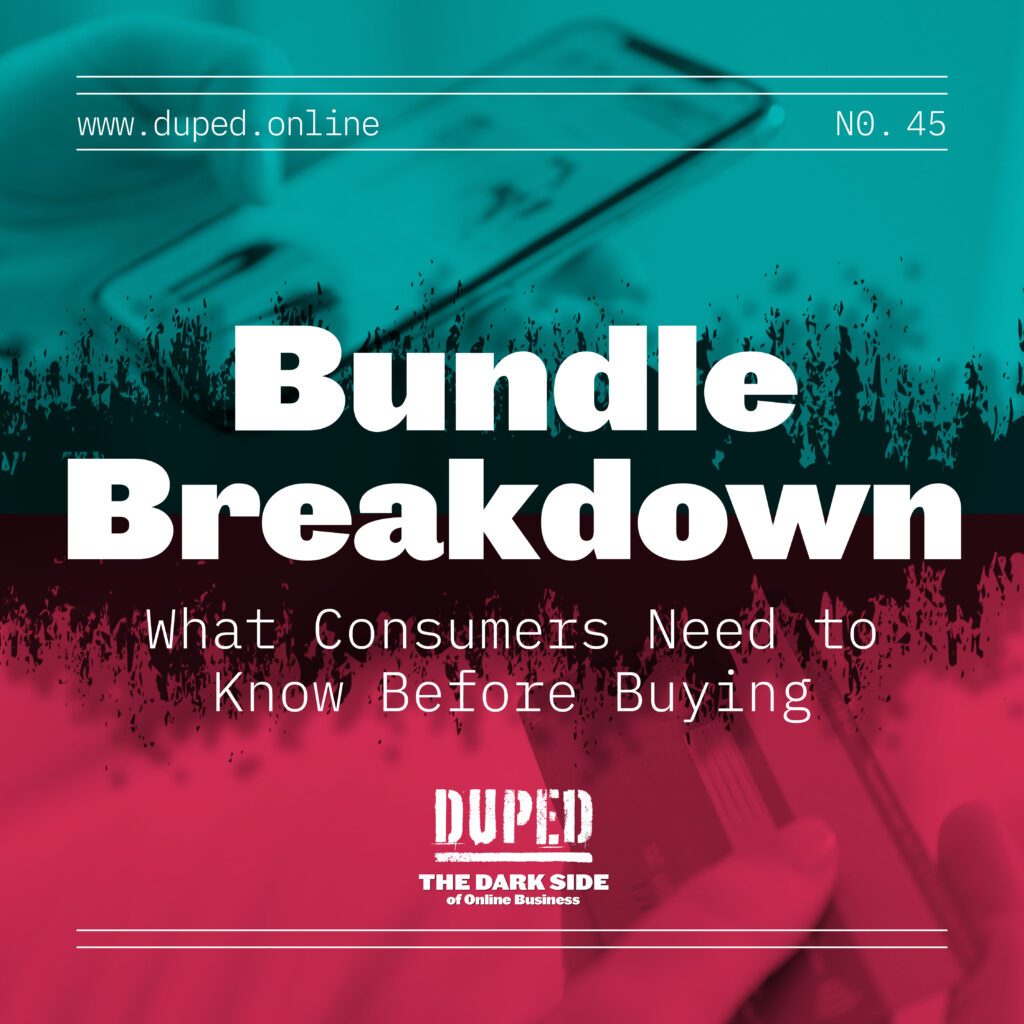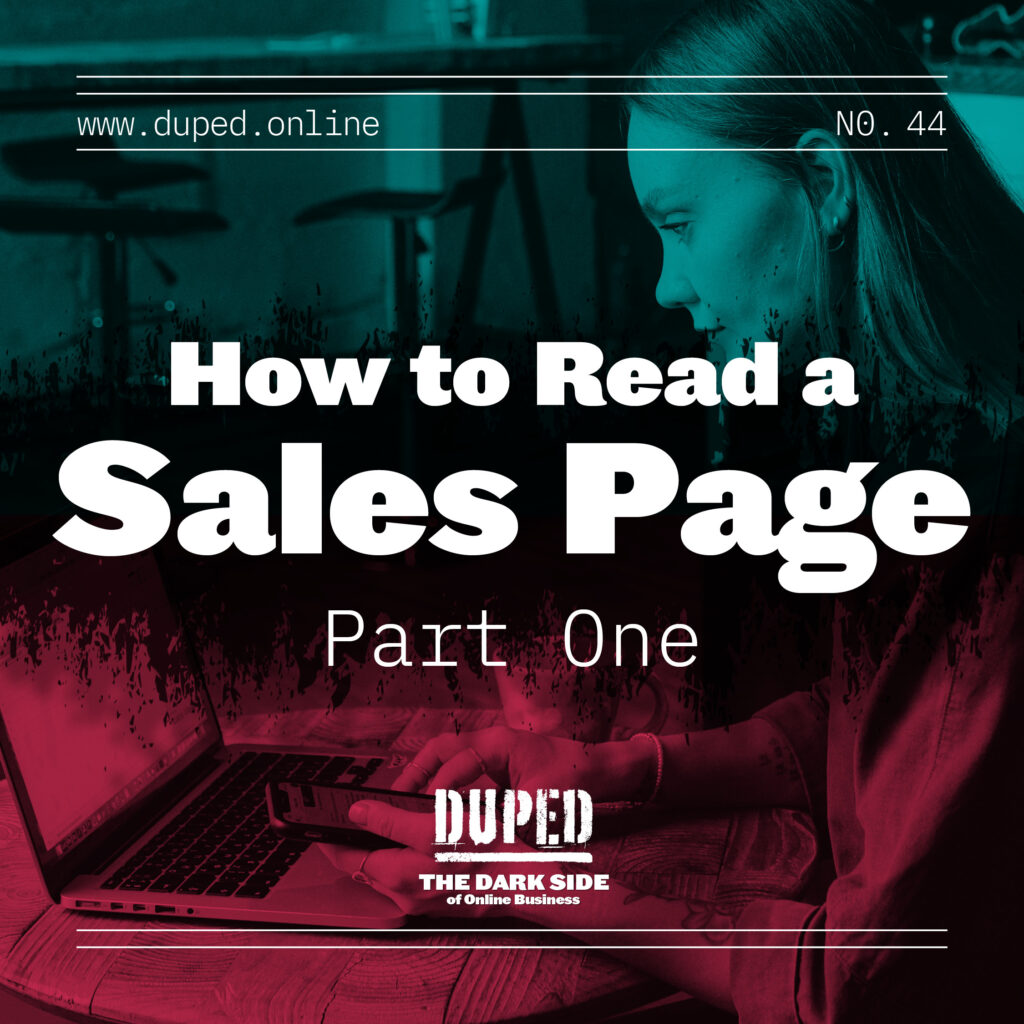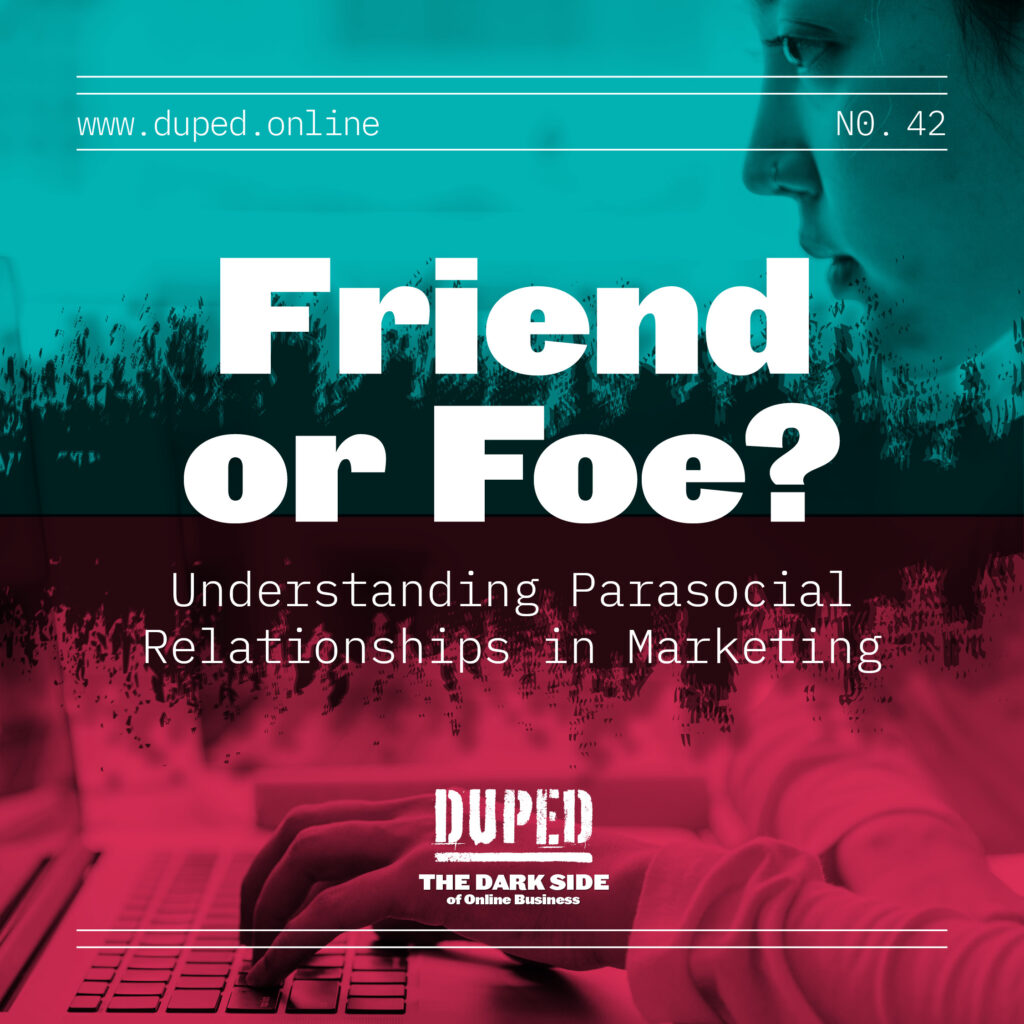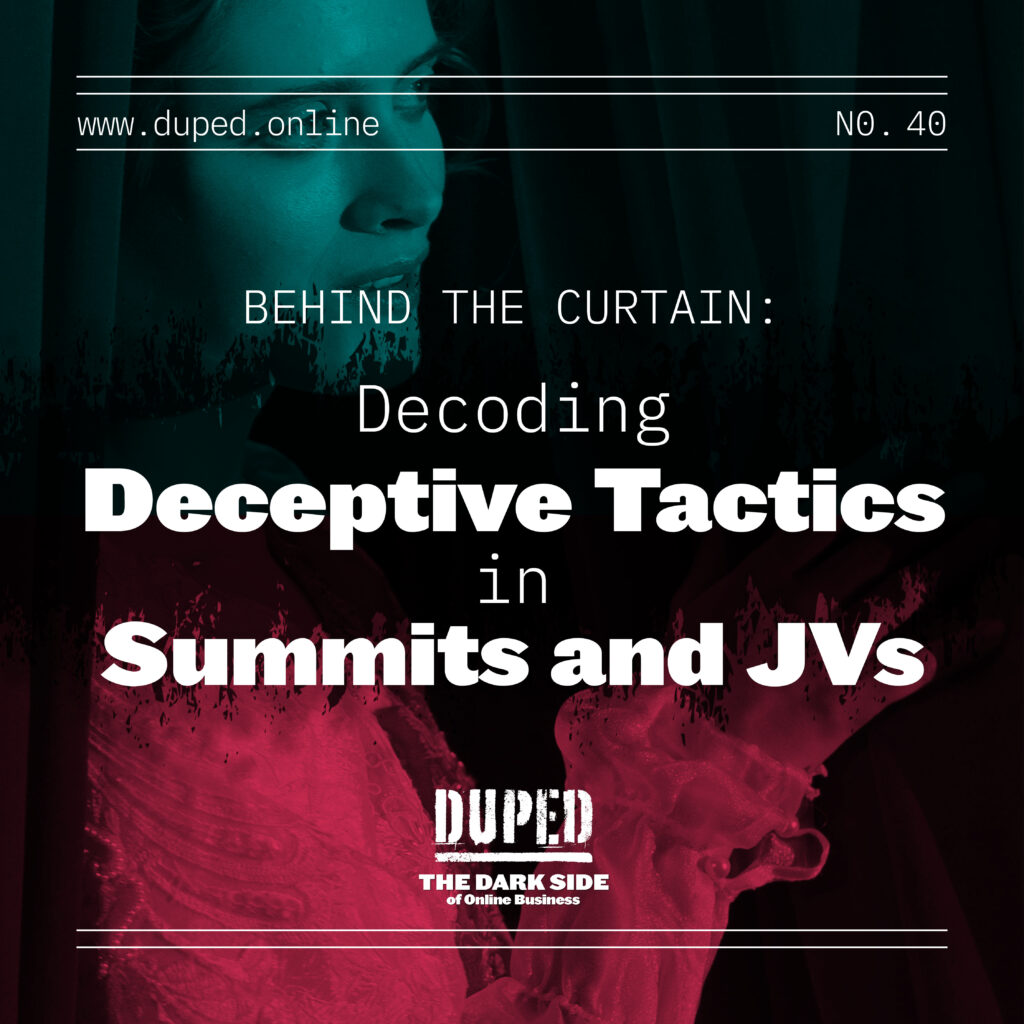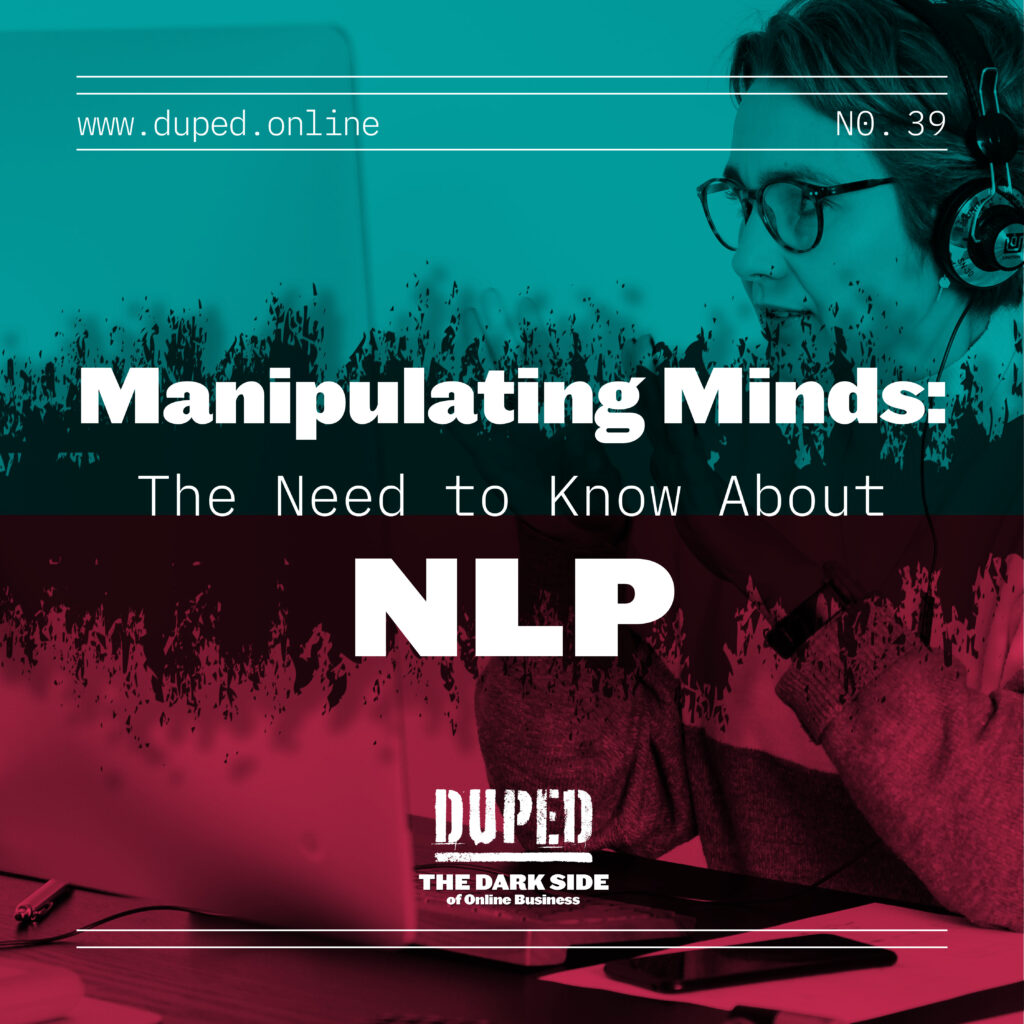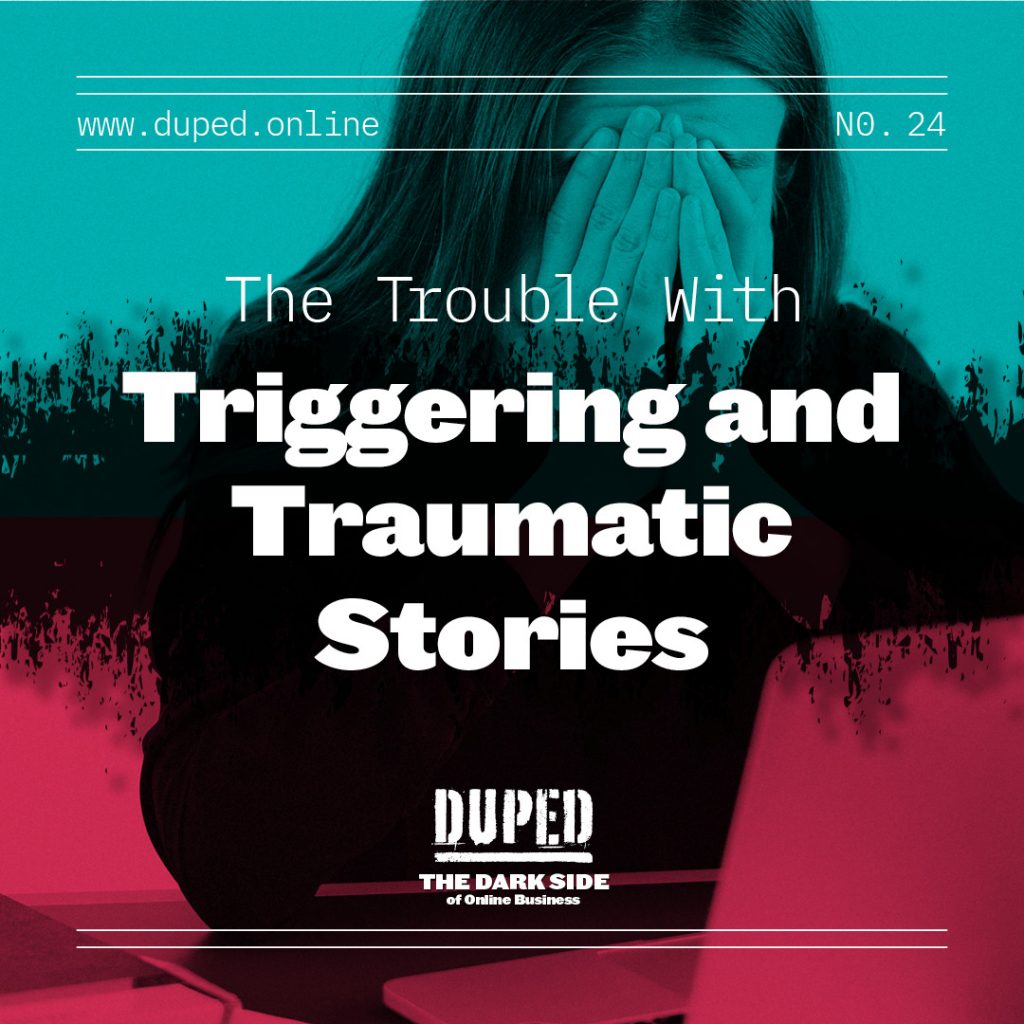
The Trouble with Triggering and Traumatic Stories
You just need to share your story is a common refrain in online business. It sounds good on the surface, as every one of us are humans who love a good story. But what happens when those stories are shared so that they manipulate or even harm our audience?
In this episode of Duped, we’re diving into the business practice of sharing stories and the seedy, harmful underbelly of when storytelling goes wrong.
TW: Throughout this episode, we’ll be sharing examples of traumatic and dramatic stories which mention mental illness, sexual assault, various types of abuse and suicide. Please listen with care, or skip this episode if these topics are potentially triggering for you.

Back in the first episode of this season, we shared a story about how storytelling can go terribly wrong as part of our “shit we saw on the internet” segment. Our commentary on that style of storytelling sparked some discussion with listeners, and more importantly, it highlighted how the typical online business advice of “just share your story” isn’t all that it seems.
As a writer, and communications professional, storytelling is a big part of the work Maggie does. It’s unavoidable, which is why when she sees this shitty storytelling advice that’s rooted in this oversimplified, “just share your story” BS, she’s super irritated.
Because it’s not that simple. And that’s what we’re going to get into today. Storytelling is powerful, so it needs to be used with the utmost care for the people watching, hearing or reading it.
Why Celebrity Entrepreneurs Rely So Much on Storytelling
Any marketing or communications professional will tell you that storytelling is part of how you engage your audience. It’s how you get attention. I mean, Maggie has worked in tech most of her career, and stories are a big way tech companies take abstract concepts and turn them into tangible ones.
Stories are sticky because they’re a pattern that we’re trained to recognize from birth. They cut through a lot of our cognitive clutter and activate our brains, so it makes sense that in our communications we’d want to use stories.
Stories are about making an emotional connection of some kind with your audience, and for celebrity entrepreneurs, for them to get attention at scale, they rely heavily on stories.
But here’s where things take a turn. They often all sound the same and have similar offers so they rely heavily on their personal stories to stand out.
These stories are designed to do one thing, and one thing only. Get your attention.
That’s why we have common storytelling tropes used in online business like:
- Overnight success
- Rags to riches
- Overcoming a major hurdle
- Sharing a dramatic life event
- I did it and you can too
What we’ve seen in the past two to three years is that celebrity entrepreneurs (and even run-of-the-mill online business owners) are sharing increasingly dramatic and even trauma stories in an effort to get our attention.
The storytelling stakes keep getting higher and higher, and that comes at a cost for everyone on the receiving end of it.
The Hero’s Journey Gone Wrong
Much of the storytelling style used in online business is rooted in Joseph Campbell’s The Hero’s Journey. This approach to storytelling is incredibly common in the western world, and it’s something we see used in popular series like Star Wars, Harry Potter, and The Matrix.
Way back in the day when the grandpas of online business got into the game, they understood that this common narrative structure was very appealing to their audience. It was familiar, and it was a powerful way to cast them as the hero.
There are two big problems here. First, The Hero’s Journey is incredibly flawed as a storytelling framework as it’s typically about white, western men and their rise to fame. There’s been a lot of debate about how Campbell simply selected the myths that supported his thesis.
Essentially, this type of storytelling misses the point that we’re trying to make a connection with our audience, and turns it into being all about us.
Individualistic Storytelling: The Heart of Marketing and Sales
This highly individualistic style of storytelling has become a business “best practice” in online business with everyone seeing stories as THE way to market and sell.
And there’s no denying that story is important, but it’s become the literal heart of so many of these businesses.
The story is used to lure you in. The story is used to create a connection. The story is used to push you into the sale.
In a sea of people using stories, to stay relevant and break through the noise, the stories have become increasingly dramatic and traumatic.
Storytelling has become a weapon to get your attention and to get you to buy.
There are two types of stories we see weaponized all the time. The first is stories that are designed to be relatable. These stories are always super contrived from my point of view, but they’re very clever as they’re designed to make you think that the person sharing the story is just like you.
On the surface, It would appear that they are. But when you take another look, you realized you’ve been played. A great example of this is the stories we’ve seen Rachel Hollis share over the years, these stories are curated vulnerability to be relatable.
This is also why she’s experienced so much backlash over the last two years, as her storytelling made her seem relatable, when really and truly she is not.
Another example is a story that we see typically in the marketing and sales process which is along the lines of “I did it and you can too”. This type of story exists to convince you that you’ll get the same results and that the fear or hesitation you’re facing are entirely normal.
The problem is that this story literally exists to manipulate you into buying something. It’s used to overcome your objections and convince you that you’ll get the same results.
So far, these stories seem pretty run of the mill, which is why I want to talk next about the use of trauma stories.
Beware Trauma Dumping Stories
Somewhere along the way, in the quest to tell stories, it’s been taught that you need to share the hard shit and be vulnerable. And I’m not talking about vulnerable in a Brene Brown kind of way, but in a way that dishes up your dark and traumatic parts for public consumption.
This is not storytelling, it’s trauma dumping. It’s dangerous and unhealthy.
What we’re not saying is that you can’t ever share these things, but that you need to consider if your business is the right place for it. There are zero requirements for you to do this, there are lots of stories you can share that won’t do harm to your audience.
And if you’re going to share anything potentially triggering to your audience, you need to do it with consent and care. You need to use content and trigger warnings. Most of all, figure out WHY you want to share it.
So many times people are using their business and/or social media to process their emotions without any regard for anyone else involved.
Storytelling Shouldn’t Cause Stress
As we wrap up, the goal of this episode is to share with you that you can tell stories in a way that’s not all about you, and that doesn’t require you to share every single thing about yourself. You’re entitled to have a public life AND a private one.
When you tell stories, you can do it both responsibly and respectfully. Most of all, telling stories, and hearing them, shouldn’t ever cause you or your audience stress.
As a consumer who’s on the receiving end of these types of weaponized dramatic and traumatic stories, here’s what to watch for:
- Analyze the Intent: Question why they’re sharing a story in that specific application. Why are they telling this story at this time and what do they intend to do by sharing it?
- Watch for Impact: What’s the impact of the story when you read, watch or listen to it? How it makes you feel is a powerful indicator.
- Making it All About Them; Notice when the celeb entrepreneur is using stories that are always about them. Yes, they’re the face of the business, but they shouldn’t only ever talk about themselves and make themselves the hero.
- Understand Oversharing: Oversharing is a thing, but you don’t have to accept it or accommodate it. Unsubscribe. Unfollow. Disengage where you can, because oversharing is never a sign of a healthy environment.
Links for this episode:
Join the

Patreon

for only $7/month and get a
monthly bonus episode,
behind-the-scenes content
and more.
